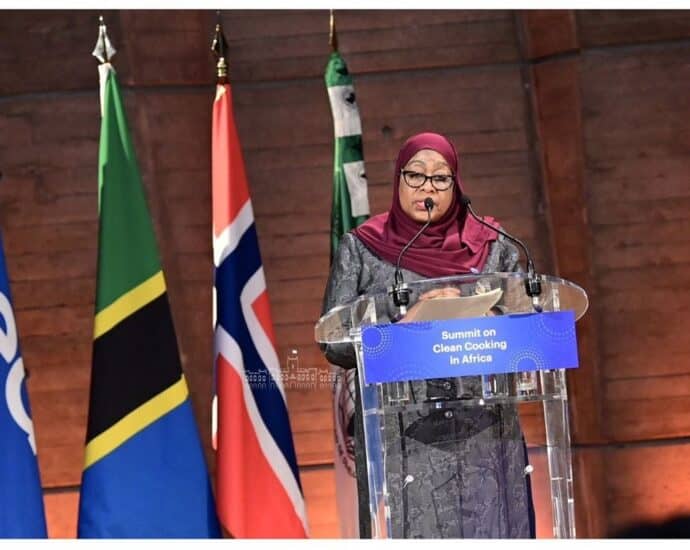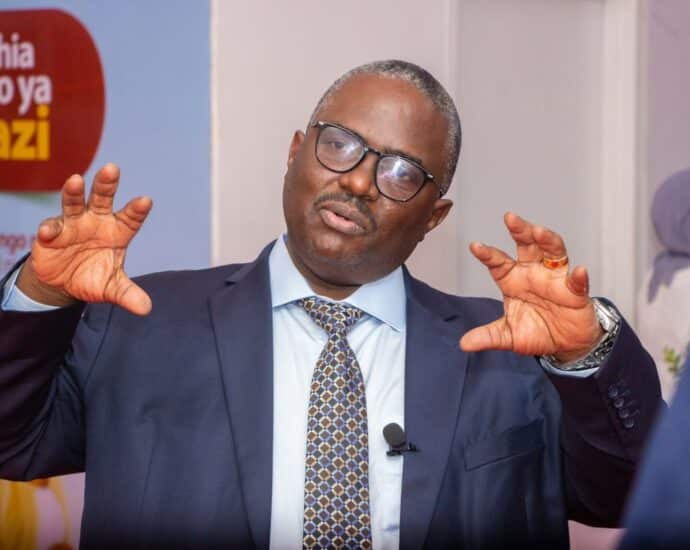Vision 2050: How Tanzania’s youth can drive $2.5 trillion future
In our high-gear development strategy for Tanzania last week, we projected Tanzania’s GDP to soar to an astounding $2.5 trillion by 2050, with GDP per capita reaching $18,000.
This vision starkly contrasts with conventional – read World Bank’s – estimate of less than $3,500 per capita GDP by 2050. We have a choice: we can accept the limitations of conventional forecasts, or we can choose to ignite a future of exceptional growth. Planning is about making choices, and my vision for 2050 is that of a nation on a trajectory to power not otherwise.
That said, no sustainable growth strategy, high-gear or otherwise, can succeed in Tanzania without addressing a crucial piece of the puzzle: the Youth Challenge. By 2050, Tanzania will have about 130 million whereby, using current ratios, more than 70 million will be below 25 years.
That implies a staggering four million or more youth entering the job market every single year, aggravating the situation caused by the existing youth unemployment time bomb that currently stands at around 70 percent. But where others see only doom, we see opportunities of Brobdingnagian scale.
I wrote my first article about the youth challenge in 2020 where I argued that Africa, with an average age of 19 compared to 29 and 37 for India and China respectively, is letting its youth down by pursuing many fanciful narratives such as youth entrepreneurship. Since then, I have written at least half a dozen other articles related to the same subject, in the process developing ideas for absorbing millions of youth into formal employment.
Out of everything I have ever written on the subject, I think the idea of using the military, specifically the national service (JKT) in a reformed sense, was the most potent and is worth revisiting, especially with Vision 2050 in mind.
JKT was once envisioned as a beacon of youth development, a place to forge discipline, ignite patriotism and empower young minds. But it hasn’t lived up to its promise since its original purpose became clouded in military talk in the 1970s.
Today, opacity shrouds its operations, achievements are unclear, and even supplying necessities for the TPDF is beyond its grasp. All this while, JKT has relied heavily on government subsidies, the very opposite of what its mission ought to be.
However, JKT’s potential to make Tanzanian youth a driving force for building the nation remains immense. It has vast landholdings, a readily available, large workforce through conscription, and a strong emphasis on discipline. These are all key ingredients for economic transformation.
Of all the Tanzanian presidents after Nyerere, I think only Magufuli was close to comprehending what JKT could do – consider his use of JKT conscripts to build government structures, school desks, and even a wall around the Mererani mines.
The man practically solved a decades-old school desk shortage in just one year! I’m not exactly a Magufuli fan, but that’s what transformative leadership looks like.
That said, even Magufuli didn’t grasp fully what JKT can do, or he would have done it. Let me try to paint a picture of that vision for Tanzania here by borrowing details from a proposed project developed by a friend – a former government strategist – who reached out to me after reading some of my articles.
In this vision, Tanzania proposes a synergistic large-scale youth development project through JKT which incorporates 3.5 million youth initially. Villages will contribute 500 youth each to a six-year military programme focused on discipline, construction skills, specialised farming, and digital technology. Youth will receive land, build their own homes, and gain valuable agricultural training.
Their farms, houses, and factories will be equipped with state-of-the-art digital facilities for them to enjoy modern amenities right where they are. Processing factories built by JKT will ensure value-added production, with joint ventures selling finished products domestically and internationally.
The project offers a unique incentive: after 6 years, the house and land become the youth’s property. This ownership, combined with agricultural and technology training and market access, empowers young people to build a secure and prosperous future.
Extended military training and discipline will address the wishy-washy everything-goes bodaboda cultural syndrome that characterises our nation now. Elite civilian strategists and experts will lead the project being supported by men in uniforms.
Production will soar: the numbers are mind-boggling. We will end poverty and youth unemployment permanently. And the government will collect tens of billions of dollars annually just in taxes alone.
I wish I could say that this idea is novel, but many nations have used the military for dramatic economic transformation before. I have written about South Korea and Israel in previous articles, but we can add Russia, China, and even the US to that list. This isn’t novel – when transformative leaders really want something special to happen, they turn to their men in uniforms to make sure that it does. Reforming JKT and taking it back to its original vision of kujenga taifa is crucial for achieving our kind of 2050 vision.
May God make that happen.
Charles Makakala is a Technology and Management Consultant based in Dar es SalaamContinue Reading




















